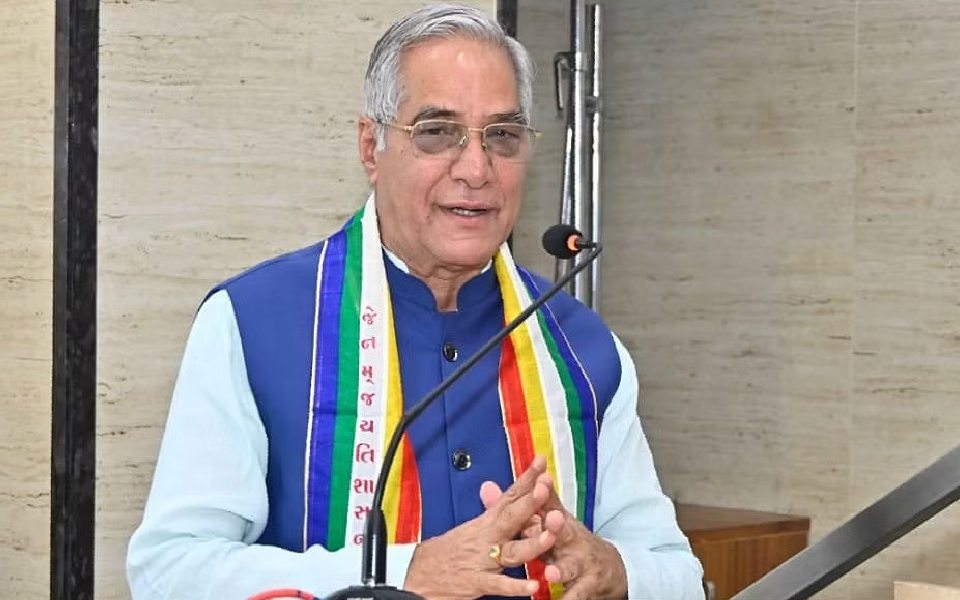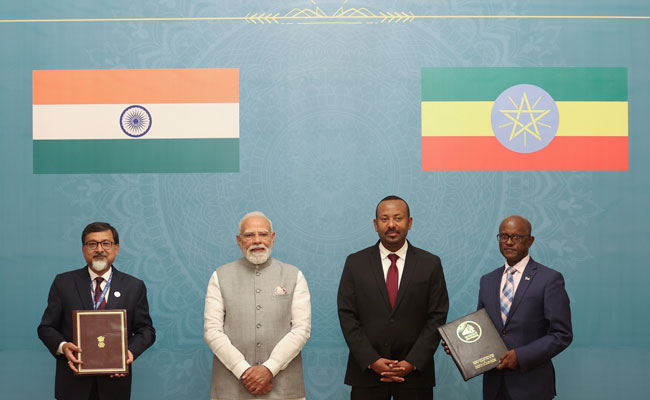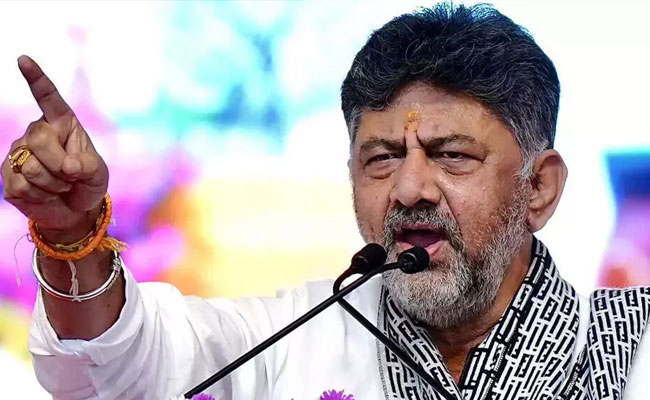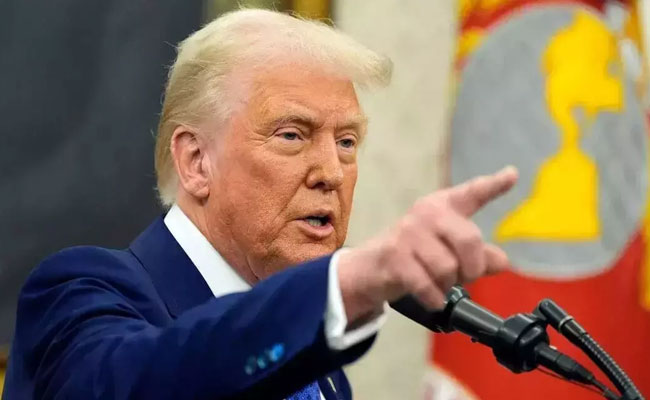Kochi: The name of Rajya Sabha MP Lehar Singh Siroya, a senior BJP leader alleged to be the source of the money laundering case in Kodakara, has surfaced. Siroya, a former Karnataka MLC, has been implicated as a key figure behind the operations, according to a report from the Kerala Police shared with the Enforcement Directorate (ED).
The report suggests that Siroya is involved in the illegal transfer of funds into Kerala. It includes details such as his phone number and mentions that the funds were intended for the BJP's election expenditures in Kerala during the 2021 elections. Siroya is also noted for his close ties with national leaders of the BJP.
Previously, reports indicated that ₹41.20 crores flowed into Kerala during the last assembly election period. The names of Kerala leaders such as K. Surendran, M. Ganesh, and Girishan Nair were also mentioned in the report.
In response to the allegations, Siroya has stated that he knows nothing about the Kodakara money laundering case. He claimed in a conversation with Mathrubhumi News that he has not been in Kerala for the past seven years.
Siroya emphasised that he has not been contacted by the Kerala Police regarding this matter. He further stated that he has no prior acquaintance with state leaders, including BJP's state president K. Surendran, asserting that he only knows V. Muraleedharan, with whom he had a relationship during Muraleedharan’s tenure as a Union Minister. He denied being involved in any such transactions and warned that if his name continues to be misused in news reports without his permission, he would file a defamation case.
The report highlights that Siroya, who was a sitting MLC in Karnataka at the time, has been accused of being involved in the illegal transfer of funds into Kerala, which were allegedly intended for the BJP's campaign expenditures. This ongoing investigation has brought significant attention to Siroya, especially due to his connections with national BJP leaders.
Kerala government reopens Kodakara case amid controversy ahead of bypolls
The Kerala government decided to reopen the case after a former secretary of the BJP's Thrissur office claimed that cash-filled bags, marked as election materials, arrived at the office late on 2 April 2021.
The BJP in Kerala is once again embroiled in controversy ahead of the 13 November bypolls, with the state government deciding to further investigate the 2021 Kodakara hawala case. The decision came after Tirur Satheesh, the former office secretary of the BJP’s Thrissur district office, claimed that cash-filled bags marked as election materials arrived at the office on 2 April 2021, just before the Assembly elections.
BJP leaders perceive the government’s move to reopen the case as a political strategy to undermine their election efforts, noting that this could damage the party’s image at a critical moment. Adding to the BJP’s woes, the Kerala High Court had recently ordered a stay on the Kasaragod Sessions Court’s order discharging BJP state president K. Surendran from an election bribery case related to the 2021 Manjeswaram Assembly elections.
By-elections to the Palakkad and Chelakkara Assembly segments and the Wayanad Lok Sabha constituency are scheduled for 13 November.
The significant development in the Kodakara case arose following Satheesh’s claims, leading Chief Minister Pinarayi Vijayan to discuss reopening the case with state police chief Dr. Shaik Darvesh Saheb on 1 November. The CPI(M) state secretariat has also discussed the situation, with party state Secretary MV Govindan stating that a comprehensive inquiry is necessary.
As the case is still under consideration of the Irinjalakuda First Class Judicial Magistrate Court, the Special Investigation Team (SIT) led by Thrissur Range DIG will need to seek the judiciary’s permission for further investigation.
The Kodakara hawala case emerged as a high-profile political controversy in Kerala in 2021, involving an alleged illegal transfer of cash intended for election purposes. On 3 April 2021, just days before Kerala’s Assembly elections, reports surfaced of a robbery on the Kodakara highway in Thrissur district, initially claiming around ₹25 lakh was stolen. However, investigations revealed that the actual amount was over ₹3.5 crore in unaccounted cash, raising suspicions about its possible use in election-related activities and linking it to a hawala operation.
Subsequent reports suggested that the cash belonged to BJP members and was intended to fund their election campaigns in Kerala. Allegations arose that the money was part of an underground hawala network to bypass financial regulations.
Multiple arrests were made in connection to the hawala operation and the robbery, leading to a broader inquiry into whether the funds were linked to BJP’s election financing. A police report handed over to the Enforcement Directorate revealed that ₹41.40 crore was allegedly brought from Karnataka to Kerala during the 2021 Kerala Assembly elections, mentioning the name of BJP leader and Rajya Sabha MP from Karnataka Lehar Singh Siroya.
The BJP has denied any connection to the cash, asserting that it is an attempt to malign the party. However, Satheesh's claims that the stolen money was part of the party’s election fund and that he assisted in moving the moneybags from the ground floor to the party office have put the BJP on the defensive.
Meanwhile, the BJP state leadership dismissed Satheesh’s claims as baseless, accusing political opponents of spreading misinformation. They contend that Satheesh, ousted from the party two years ago on charges of financial misappropriation, is making allegations as an election gimmick. However, the Congress has alleged a deal between the CPI(M) and BJP, asserting that the reopening of the case is merely an eyewash during election time.
Let the Truth be known. If you read VB and like VB, please be a VB Supporter and Help us deliver the Truth to one and all.
Addis Ababa (PTI): India and Ethiopia on Tuesday elevated their historical ties to a strategic partnership, as Prime Minister Narendra Modi held wide-ranging talks with his Ethiopian counterpart Abiy Ahmed Ali during which they discussed issues of bilateral and mutual interest.
Modi, who arrived here from Jordan on his maiden bilateral visit, was accorded a ceremonial welcome at the National Palace ahead of the bilateral talks, reflecting the vibrant India-Ethiopia relations rooted in shared history and a promising future.
"We are elevating India and Ethiopia relations to a strategic partnership. This step will provide new energy, new momentum and new depth to our ties," Prime Minister Modi said during the delegation-level talks.
He thanked PM Ali for his support in India's fight against terrorism. "The support of friendly countries in this struggle against terrorism holds great significance," Modi said.
"Today, we got the opportunity to deliberate on the key aspects of our cooperation, such as economy, innovation, technology, defence, health, capacity-building and multilateral cooperation. I am pleased that today, we have decided to double the student scholarship for Ethiopia in India," Modi said.
Modi said that India and Ethiopia have shared contact, dialogue, and exchange for thousands of years. The two countries, which are rich in languages and traditions, are symbols of unity in diversity, he added.
"Both countries are democratic powers committed to peace and the welfare of humanity. We are co-travellers and partners of the Global South. On international platforms, we have stood shoulder-to-shoulder," he said.
The two sides signed eight MoUs/agreements, including upgrading ties to 'Strategic Partnership', customs cooperation, establishing data center at the Ethiopian Foreign Ministry, UN Peacekeeping training cooperation, debt restructuring under G20, more ICCR scholarships and AI short courses for Ethiopians, and support for maternal and neonatal healthcare.
Modi said the African Union's headquarters in Ethiopia makes the country a meeting point of African diplomacy. "Inspired by the common vision of an inclusive world, in 2023, India ensured that the African Union became a G20 member," he said.
In 2023, during India’s G20 Presidency, the African Union was admitted as a permanent member of the G20.
Modi said that though this is his first visit, he felt a deep sense of belonging and warmth, reflecting the thousands of years of connection between the two countries.
On his part, Prime Minister Ali said the two countries share over thousands of years of connection through trade, diplomacy, education, culture and even in our food and traditions. "These ties continue to shape a deep friendship, collaboration and mutual respect between our people," he said.
"We also appreciate your consistent message that Africa's priorities must lead the partnership. These kinds of dignified, respectful messages for Africa are very important. Mr Prime Minister, keep pushing. That is the type of message we are expecting from all our trusted friends," Ali said.
He said this aligned fully with Ethiopia's development plan - African-owned, African-led, and African-defined.
"Today, we meet with a clear focus to shape a modern partnership, grounded in sovereignty, self-reliance and practical cooperation. Our cooperation is rooted in equality and South-South solidarity," he said.
"Our economy is performing strongly. Last year, we grew 9.2% and this year we are expecting 10.3% GDP growth. Besides GDP growth, our FDI inflow is also rising big time. India is the leading source for our FDI," he said.
"We have more than 615 Indian companies which are investing in Ethiopia. This all gives our cooperation a strong foundation of trust. I think our decision today that we elevate our historic relationship to a strategic relationship is the right decision," he added.
Ethiopia also conferred its highest award - The Great Honour Nishan of Ethiopia - on PM Modi. He is the first global head of state to receive this award.
Prime Minister Modi also went to the Friendship Park and Friendship Square in Addis Ababa with PM Ali.
In a warm and special gesture, PM Modi was earlier received by his Ethiopian counterpart at the airport and accorded a warm and colourful welcome.
"Ethiopia is a nation with great history and vibrant culture," Modi said.
PM Ali informed his Indian counterpart about the varieties of Ethiopian coffee during informal talks.
"At Addis Ababa airport, took part in a traditional Coffee Ceremony with Prime Minister Abiy Ahmed Ali. The ceremony beautifully highlights Ethiopia’s rich heritage," Modi said.
In a unique gesture, the Ethiopian Prime Minister drove Modi to the hotel.
On the way, he took a special initiative of taking PM Modi to the Science Museum and Friendship Park, which was not in the itinerary.
"Gratitude to Prime Minister Abiy Ahmed Ali for showing me glimpses of Ethiopian history and culture at the National Palace Museum in Addis Ababa. It was a powerful reminder of Ethiopia’s rich traditions," Modi said in a post on X.
The Nobel Peace Prize-winning Ethiopian PM’s special gestures show remarkable respect for Modi, sources said.
"Thank you Ethiopia for a welcome that was unforgettable. The Indian community showed remarkable warmth and affection. India-Ethiopia friendship is going to get even more robust in the times to come," Modi said.
When Modi arrived at the hotel, he was warmly welcomed by the members of the Indian community. Local artists performed dances. Some of them danced on the theme of the popular Hindi song 'Aisa Des Hai Mera' to welcome him.
On Wednesday, Modi will address the Joint Session of Parliament and share his thoughts on India's journey as the "Mother of Democracy" and the value that the India-Ethiopia partnership can bring to the Global South.
PM Modi arrived in Ethiopia from Jordan, where he held a one-on-one meeting with King Abdullah II at the Husseiniya Palace on Monday before the delegation-level talks.
India and Jordan also inked MoUs in the fields of culture, renewable energy, water management, digital public infrastructure and twinning arrangement between Petra and Ellora, aimed at giving a major boost to bilateral ties and friendship.
From Ethiopia, Modi will visit Oman on the final leg of this three-nation tour.





